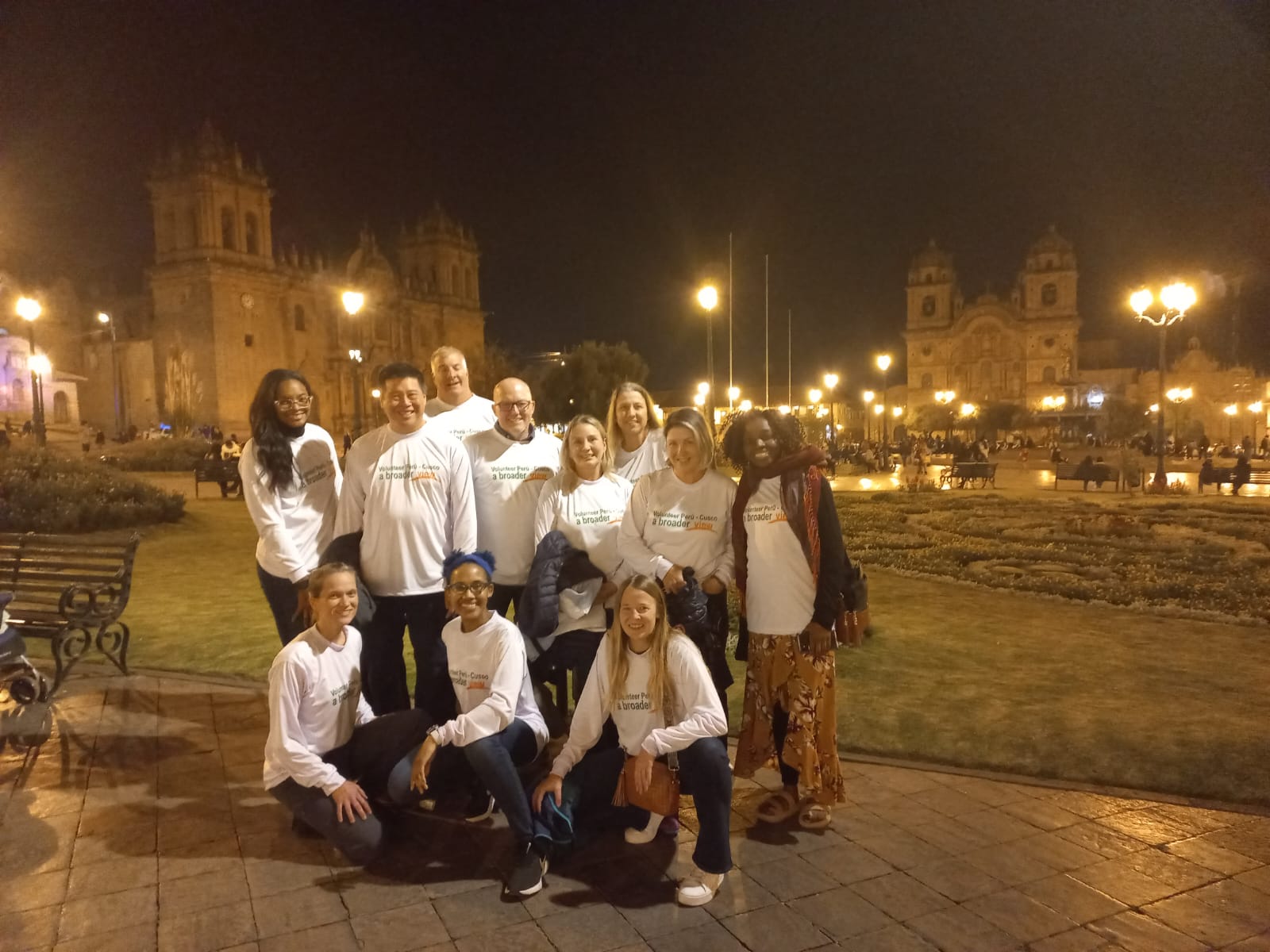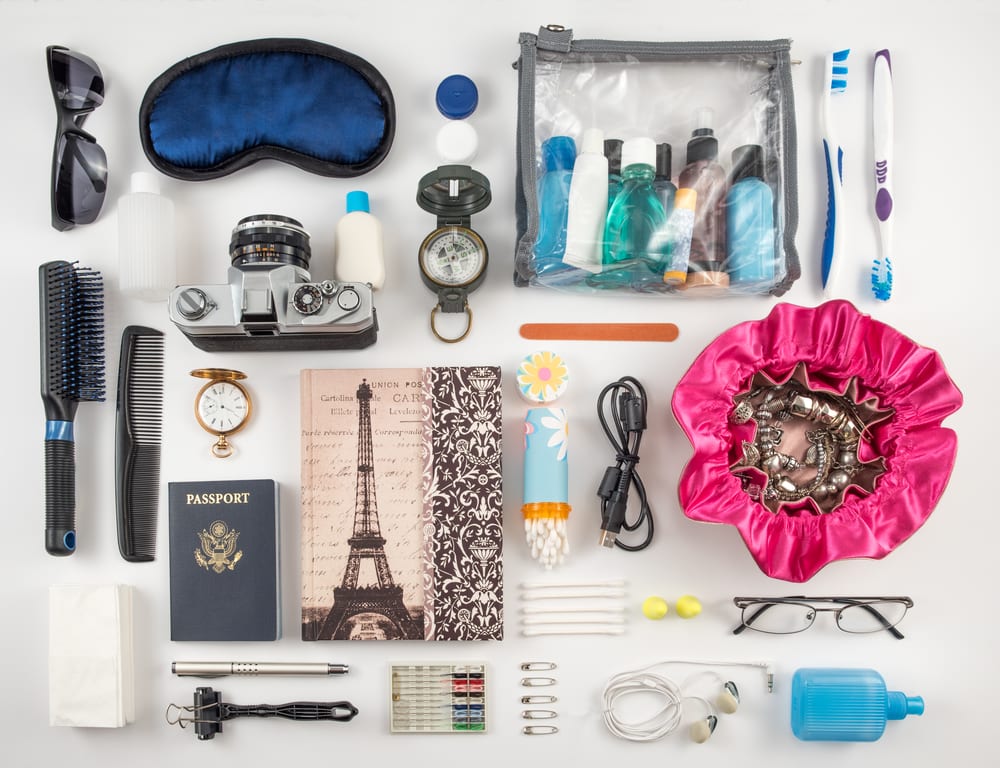Planning to volunteer abroad? Make sure you’re prepared! Check out this comprehensive list of 25 essential items to bring with you when volunteering abroad for a truly enriching and impactful experience. Visit www.abroaderview.org for more information and opportunities.
Content List:
- Backpack: A sturdy and comfortable backpack is essential for carrying your belongings during your volunteer work and exploring the local area.
- Travel Documents: Don’t forget your passport, visa, and any other necessary travel documents. Keep them in a secure and waterproof document organizer.
- Money Belt: A money belt is a discreet and safe way to carry your cash, cards, and important documents while keeping them close to your body.
- Local Currency: Carry some local currency for immediate expenses upon arrival, such as transportation or small purchases.
- First Aid Kit: Pack a basic first aid kit with essential medical supplies, including bandages, antiseptic cream, pain relievers, and any necessary prescription medications.
- Insect Repellent: Protect yourself from insect bites and diseases by bringing a reliable insect repellent.
- Sunscreen: Ensure you have a high SPF sunscreen to shield your skin from the sun’s harmful rays.
- Water Bottle: Stay hydrated by carrying a reusable water bottle, especially in areas where clean water may not be readily available.
- Travel Adapter: Bring a universal travel adapter to charge your electronics and keep connected.

- Flashlight: A small flashlight or headlamp will be handy during power outages or for exploring areas with limited lighting.
- Travel-sized Toiletries: Pack travel-sized toiletries, including toothpaste, soap, shampoo, and other personal care items.
- Travel Towel: A quick-drying and lightweight travel towel is useful for volunteer work and trips to the beach or swimming pools.
- Clothes for Various Weather Conditions: Consider the climate of your destination and pack appropriate clothing, including lightweight and breathable options.
- Comfortable Shoes: Bring a pair of sturdy and comfortable shoes suitable for walking, as you may be on your feet for extended periods.
- Rain Jacket or Poncho: Prepare for unexpected rain showers with a compact rain jacket or poncho.
- Sleeping Bag or Liner: If you’ll be staying in basic accommodations, a lightweight sleeping bag or liner can provide additional comfort and hygiene.
- Power Bank: Keep your devices charged on the go with a portable power bank.
- Camera: Capture memorable moments and document your volunteer experience with a digital camera.
- Travel Insurance: Protect yourself against unexpected events by purchasing comprehensive travel insurance.

- Phrasebook or Language App: Learn some basic local phrases or download a language app to facilitate communication with locals.
- Snacks from Home: Bring some familiar snacks from home to enjoy during downtime or to share with new friends.
- Reusable Bags: Carry reusable bags to reduce plastic waste and for shopping at local markets.
- Notepad and Pen: Take notes, jot down important information, or write reflections in a notepad.
- Work Gloves: Depending on your volunteer work, work gloves may be necessary for tasks such as construction, gardening, or animal care.
- Open Mind and Positive Attitude: While not a physical item, maintaining an open mind and positive attitude will greatly enhance your volunteering experience.
FAQ:
- How can I find volunteer opportunities abroad?
- Visit www.abroaderview.org for a wide range of volunteer programs and destinations.
- Is travel insurance necessary for volunteering abroad?
- Yes, travel insurance is highly recommended to protect yourself in case of emergencies or unforeseen circumstances.
- What should I do
- if I lose my passport or other important documents while volunteering abroad?
- In the unfortunate event of losing your passport or important documents, immediately contact your country’s embassy or consulate in the host country. They will provide guidance and assistance in replacing your lost documents.
- Are there any specific vaccinations I should get before volunteering abroad?
- It is crucial to consult with a healthcare professional or travel clinic well in advance to determine the necessary vaccinations for your destination. Common vaccinations include those for hepatitis A and B, typhoid, tetanus, and diphtheria.
- How can I ensure my safety while volunteering abroad?
- Prioritize your safety by researching the destination, understanding local customs and laws, and following the guidance of your volunteer organization. Stay vigilant, avoid risky areas, and maintain open communication with fellow volunteers and program coordinators.
- Can I volunteer abroad if I don’t speak the local language?
- Yes, many volunteer programs welcome participants with varying levels of language proficiency. However, it is recommended to learn basic phrases or consider programs that offer language support or interpreters to facilitate communication.
- What should I do in case of a medical emergency while volunteering abroad?
- Familiarize yourself with the local healthcare facilities and emergency services. Keep important medical information handy and inform your program coordinators about any pre-existing medical conditions. In case of an emergency, contact local emergency services and notify your program staff.
- How much luggage should I bring for volunteering abroad?
- Pack light and practical. Most volunteer programs recommend one main backpack and a smaller daypack. Check the specific luggage restrictions provided by your program, as they may vary.
- Can I volunteer abroad if I have dietary restrictions or allergies?
- Many volunteer organizations accommodate dietary restrictions and allergies. Inform your program coordinators in advance so they can make necessary arrangements. It’s also recommended to carry necessary medications or allergy kits with you.
- How can I stay connected with my family and friends while volunteering abroad?
- Utilize various communication methods such as international SIM cards, internet calling services, or messaging apps to stay in touch. Ensure you have access to Wi-Fi or consider purchasing a local SIM card for data usage.
Conclusion: Volunteering abroad is a rewarding experience, and being well-prepared is essential for a successful journey. Remember to pack the essential items mentioned in this list, such as a backpack, travel documents, first aid kit, insect repellent, and comfortable shoes. Maintain an open mind, positive attitude, and be respectful of the local culture. To explore more volunteer opportunities and gain further information, visit www.abroaderview.org and embark on a meaningful volunteering adventure.
-
Safe Solo Volunteering Abroad | Empowerment FemalesThrough Service with ABV

Embrace the adventure of a lifetime with ABV’s supported solo volunteering programs. Create lasting friendships, make a real difference, and explore the world safely under a supportive umbrella. Recommend Peru, Ecuador, Colombia, and more. Table of Contents Introduction to ABV and Solo Volunteering Traveling solo can be a thrilling yet daunting endeavor. A Broad View…
-
Empowerment Through Sustainable programs: Volunteer Opportunities in Peru Cusco

Discover empowering volunteer opportunities in Peru Cusco with www.abroaderview.org. Support sustainable programs and make a positive impact while gaining valuable experiences.
-
Midwives & Obstetricians: Empower Mothers & Babies Abroad

Discover how midwives and obstetricians from abroad can empower mothers and babies through the programs offered by www.abroaderview.org. Make a difference today.



